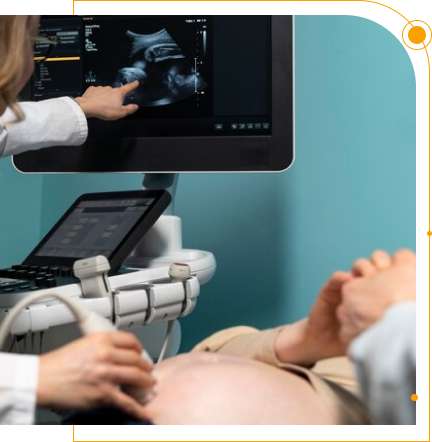
The Aim
Fetal Echocardiography is a non-invasive diagnostic procedure recommended to determine the cardiac health of the fetus. The test can only be performed after 18 weeks of gestation. It aims to:
Identify Congenital Heart Defects (CHDs) and structural abnormalities in case of a family history of heart defects
The Interpretation
Based on the findings of the Fetal Echocardiography test report, the baby’s cardiac health is determined. If any heart defect is diagnosed, a neonatal specialist will discuss everything regarding the management and treatment of the condition.
The Preparation and After:
Before undergoing the Fetal Echocardiography test, make sure to discuss any pre-existing medical condition with your doctor. Usually, no fasting is required prior to the test. However, consult with the medical professional to know if there are any other instructions to be followed before undergoing the procedure.
The Procedure:
Fetal Echocardiography is done by using a transducer. It sends sound waves to capture detailed images of the fetus’ heart and diagnose CHDs or structural abnormalities. The test lasts for a duration of 15-30 mins.

